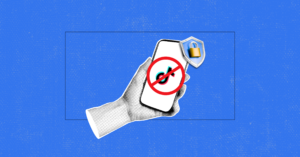I’m a woman. And I work in technology. But do those two facts need to be expressed as mutual exclusives? I regularly see headlines and hear accolades championing ‘female entrepreneurs’ and the like… but how often do you read about a ‘man in tech’? What about a ‘male entrepreneur’? This International Women’s Day, I want to call for an end to this gender-specific double standard.
I’m all for championing women in an industry where they’re underrepresented, but the language used can feel othering. It’s well intentioned and helps create female role models in a space where they’re desperately needed, but we can improve the language we use to avoid falling into ‘positive discrimination’ territory.
My experience as the co-founder of YEO, a groundbreaking private messaging app, has been pretty positive. That said, as a woman I know I am more likely to be judged on the idea that I might be more ‘emotional’, or the fact that I’m at ‘prime childbearing age’, which some people, consciously or not, will use as excuses to question my dedication and motivation towards my business. I’ve not experienced a lot of direct sexism, but there are day-to-day glimmers of the underlying problems, such as being glossed over in meetings with the focus remaining on my business partner, who also happens to be my father. He is fully supportive of me and treats me as an equal – family ties aside! – and this means I’m rarely underestimated beyond the first few minutes of a meeting, but it’s still ridiculous that it happens in the first place.
I believe there are things we can do to quash the male bias in what should be the most progressive industry in the world. Teaching coding in schools is an important start, but for women and men to be find the career path equally appealing, we need to shake off the ‘geeky’ stereotype, call out discriminatory behaviour, and focus on recognising achievements based on merit, rather than positively discriminating against either gender. Tech is about being inventive, solving problems, making things work smarter and better. There is so much possibility.
The very structure of the traditional business model, in tech and beyond it, is very masculine and needs a rethink. Letting parents split their maternity and paternity allowance in a way that best suits them, encouraging both men and women to take sabbaticals, and offering flexible hours and remote working would all be good places to start. But a truly innovative company that wants to get the best from its talent will go further than that.
Whitney Wolfe, the founder of Bumble, has created a working environment that’s fun and inclusive, and puts a huge focus on championing amazing work without ‘othering’ either gender. It’s a female-dominated workplace, so turns the traditional model on its head. Audrey Gelman, too, who is CEO of The Wing, first grabbed my attention because of the company’s amazing branding and social media — a great example of how to make a business appealing.
The change I want to see is less of a token effort to recruit more so-called ‘women in tech’ and instead, change the attitude towards women across the board in business. While professional women deserve recognition for their amazing work, we don’t need our own category. We are all comparable to our peers, regardless of gender, and separating female achievements from male only serves to reinforce the idea that working in the technology industry doesn’t reflect traditional female values or traits.
Let’s end positive discrimination and focus on celebrating the amazing work being done by all.
By Sarah Norford-Jones, Co-founder of YEO Messaging.



